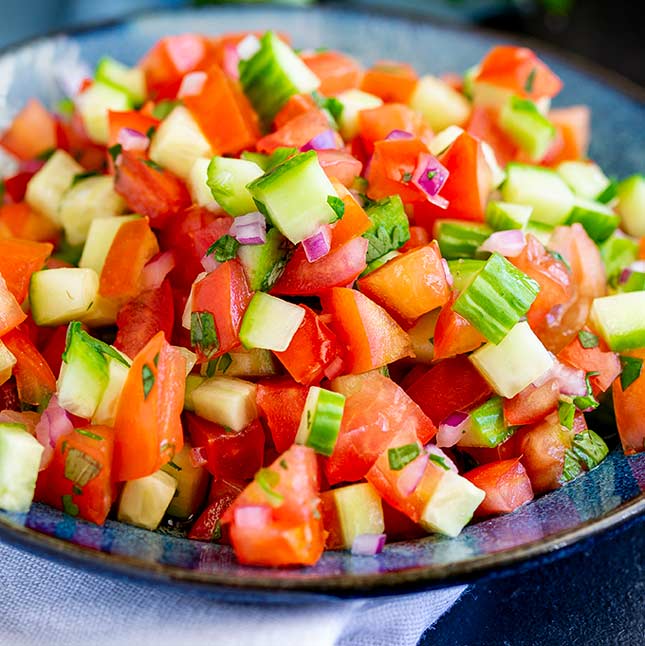Mediterranean Snow Peas: Tips for Culinary and Health Benefits
Mediterranean snow peas originated in the Mediterranean region, where temperate climates favor their growth. These peas thrive in well-drained soil with consistent moisture and full sunlight. Farmers typically plant seeds in early spring or autumn, avoiding the extreme heat of summer. Snow peas grow on vines, reaching maturity within 60-70 days. When harvesting, look for bright green pods that are flat and tender.
Nutritional Profile
Mediterranean snow peas provide essential nutrients, making them a healthy addition to your diet. Each serving contains vitamins A, C, and K, which support immune function, skin health, and blood clotting. These peas are also rich in dietary fiber, promoting digestive health and aiding in weight management. Antioxidants in snow peas combat oxidative stress, reducing the risk of chronic diseases. With only 42 calories per cup, Mediterranean snow peas offer a low-calorie, nutrient-dense option for your meals.
Culinary Uses of Mediterranean Snow Peas
Traditional Mediterranean Dishes
Mediterranean snow peas frequently star in traditional dishes across the region. In Greek cuisine, they complement horta vrasta, served with olive oil and lemon. Italian cooking often incorporates them into risotto primavera, enhancing the dish’s fresh, green flavor. Spanish paellas also benefit from their inclusion, providing a crisp texture alongside seafood and rice. You can find Mediterranean snow peas in regional stews, adding both nutrition and subtle sweetness.
Innovative Recipes and Pairings
Incorporate Mediterranean snow peas into modern culinary creations. Stir-fry them with garlic and soy sauce for an Asian-inspired dish. Blend them into hummus to add a crunchy element. Use them in fresh salads with feta, cherry tomatoes, and olives for an enhanced Mediterranean flavor. Adding these peas to pasta dishes with a lemon-butter sauce will elevate the dish’s citrus notes. They also work well as a side dish when lightly sautéed with olive oil and sea salt.
Health Benefits of Mediterranean Snow Peas
Impact on Heart Health
Mediterranean snow peas promote heart health by providing several essential nutrients. They contain fiber, which lowers cholesterol levels by aiding in the removal of excess cholesterol from the bloodstream. Additionally, magnesium and potassium present in these peas help regulate blood pressure, while antioxidants like vitamin C protect arteries from oxidative stress. According to the American Heart Association, diets high in fiber and antioxidants are linked to a reduced risk of cardiovascular diseases.
Weight Management Benefits
Mediterranean snow peas support weight management due to their low-calorie content and high nutrient density. Each cup contains roughly 27 calories, making them ideal for calorie-controlled diets. The peas’ fiber content promotes satiety, reducing the likelihood of overeating. They also provide a steady release of energy, thanks to their low glycemic index, which helps in maintaining stable blood sugar levels. Incorporating these peas into your meals can assist in achieving and maintaining a healthy weight.
Growing Mediterranean Snow Peas at Home
Best Practices for Cultivation
To grow Mediterranean snow peas successfully, start by selecting the right location. Choose a sunny spot with well-drained soil and a neutral pH of 6.0-7.0. For optimal growth, aim for soil temperatures between 40-75°F.
- Soil Preparation: Enrich soil by incorporating compost or well-rotted manure. Ensure it’s loose to promote root growth.
- Planting: Sow seeds 1 inch deep and 2 inches apart directly in the garden as soon as the soil can be worked in spring. These peas thrive in cooler weather.
- Watering: Keep the soil consistently moist but not waterlogged. Use drip irrigation or a soaker hose for even moisture distribution.
- Support Structures: Provide trellises or stakes since these plants benefit from support as they grow taller.
- Fertilization: Use a phosphorus and potassium-rich fertilizer to encourage blooming and pod development. Avoid high-nitrogen fertilizers which promote foliage over pod production.
Common Challenges and Solutions
Certain challenges can arise while growing Mediterranean snow peas, but effective solutions can address these issues.
- Pest Control: Aphids, pea weevils, and powdery mildew are common pests. Utilize insecticidal soap or neem oil, and practice crop rotation to reduce pest problems.
- Disease Prevention: Fungal diseases like root rot can occur if the soil remains too wet. Improve drainage, avoid overhead watering, and space plants adequately to improve air circulation.
- Climate Considerations: High temperatures above 85°F can hinder pod set and cause plants to wilt. Provide partial shade during peak heat and mulch to regulate soil temperature.
- Harvest Timing: For the best flavor and tenderness, pick pods regularly when they are young and flat. Overripe snow peas become stringy and tough.
- Nutrient Deficiency: Yellowing leaves can indicate a lack of essential nutrients. Conduct a soil test and amend with balanced organic fertilizers accordingly.
By following these guidelines, you’ll have a thriving crop of Mediterranean snow peas, ready for your kitchen.
Conclusion
Mediterranean snow peas offer a delightful addition to your culinary repertoire and a boost to your health. With their rich nutritional profile, they support heart health and aid in weight management. Growing them at home can be a rewarding experience if you follow the best practices for planting and care. By selecting the right location, preparing the soil, and addressing common challenges, you can enjoy a bountiful harvest. Whether you’re a seasoned gardener or a beginner, incorporating Mediterranean snow peas into your garden and kitchen promises numerous benefits.






